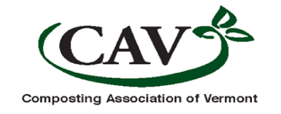Is it the sun’s heat that makes hot compost hot?
/In this first post, I address a question about siting a system, that has come up a number of times over the last few years as we’ve worked to promote community composting and it’s also a question often asked by backyard composters: “Does a compost tumbler and/or bin need to be situated in the full sun?”
It’s a common misconception that compost systems need to be in sunny spots in order to achieve hot composting. Some claim that this is why many bins and tumblers are made of dark-colored materials (think black Soil Saver bins) – in order to absorb the sun’s radiation. While this has some merit, since the sun does heat up the tumbler or bin contents, it’s not where the heat comes from when we talk about hot composting.
In fact, as with everything in well-functioning compost systems, you can thank the microbes for heating things up! Heat is a byproduct of the of the decomposition process.
In terms of siting your compost system – here are some things to consider:
Your system might dry out more quickly if situated in full sunlight. This isn’t necessarily a bad thing, but it’s (always) good to keep an eye on general moisture content. Remember to add water if it is too dry. [I can do a short post on the squeeze test and cross kink this]
If you’re composting outside with worms (vermicomposting), they actually prefer the cooler temperatures and full sun might be too much for them!
You’ll likely be wanting your compost system to function year-round. Remember that the amount of sunlight a particular spot receives changes as the sun’s path changes with the seasons and trees gain or lose their leaves. Try to think through how this might impact your chosen location.
If you live in colder climates (like Vermont!), a site protected from harsh winter winds is more important than having it in the sun.
Partial sunshine is typically optimal for placement of bins/tumblers, although if your options are limited don’t worry about it.
Community composting at Champlain Valley Co-Housing, Charlotte, VT.
As you’ll discover in upcoming blogs, and also in our community composting resources, successful composting comes through proper “best management practices.” This includes:
feeding the right food in the right volumes to the decomposers at work in the compost system,
ensuring proper moisture, and
providing appropriate aeration.
Think of these compost organisms as you would your family or pets—we all require proper nutrition, lots of water, air for breathing, and a home.



